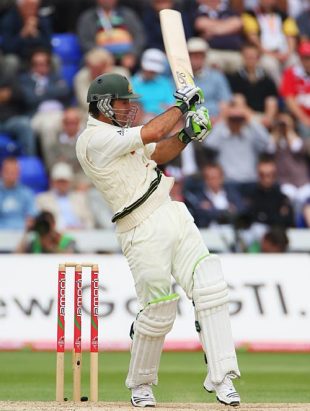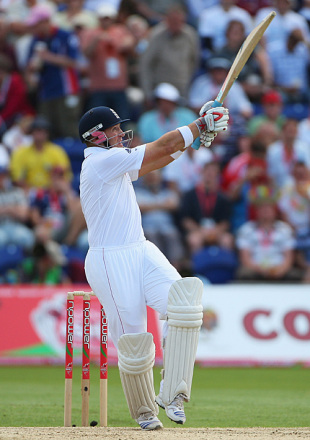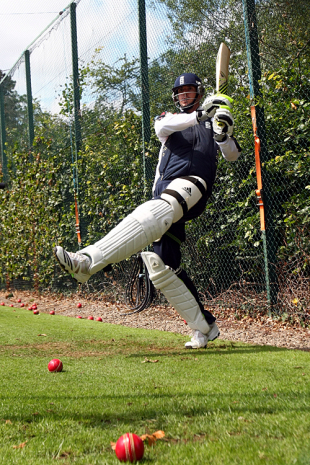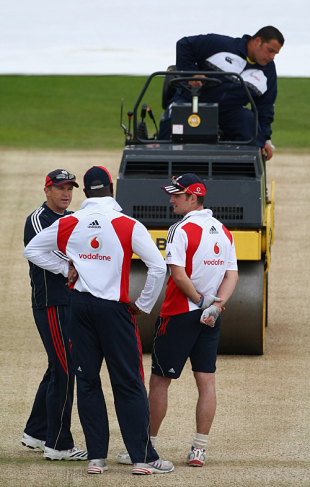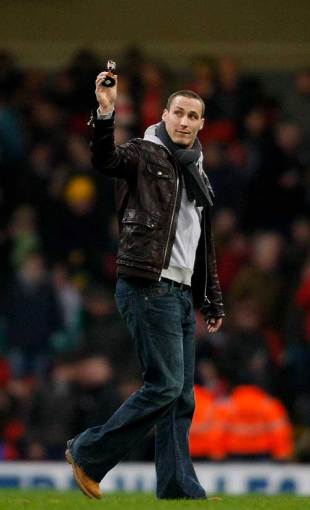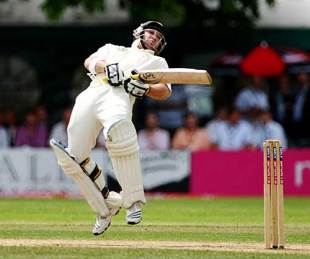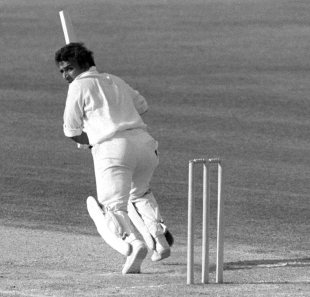
| ||
| Related Links Talking Cricket : 'I speak from the heart, not the head' Player/Officials: Sunil Gavaskar Teams: India | ||
A few weeks ago, shortly after Sunil Gavaskar had delivered the first Dilip Sardesai Memorial lecture at the Cricket Club of India, a twentysomething man asked me if Gavaskar had been a better batsman than Sachin Tendulkar, reducing me to a hum-and-haw wreck. I could understand the legitimacy of his curiosity, but was there a legitimate answer?
I must here confess to being a Gavaskarphile. Who from my vintage isn't? The passage of time sometimes tends to either exaggerate or diminish the value of the past, but the Gavaskar phenomenon, all things considered, makes for one of the great stories of not just modern sport, but also Indian life.
I was 15 when he exploded into the Indian consciousness with his record-breaking exploits in the West Indies in 1970-71, and since then have followed his amazing journey, largely for professional purposes, sometimes with deep personal flourishes, mostly with awe and admiration, but sometimes also with despair and anguish.
On my first few tours as a cricket writer I got to know first-hand not only of Gavaskar's supreme batting skills, but also the different facets to his persona. In Pakistan in 1982-83, he scored in excess of 400 runs, but became increasingly moody as the series started going awry and his captaincy came under threat. Despite that, his innate sense of humour never deserted him. In Hyderabad (Sind), after India had lost a third Test and the series, I remember Gavaskar being asked by a journalist how he would have liked India's batsmen to play the rampaging Imran Khan. "The best way would be to put a sightscreen between him and us," he replied with a straight face.
This humour could, of course, move from being self-deprecatory to caustic in the matter of minutes - or a few tours. In 1985, when India went to Sri Lanka, Gavaskar was still determined to bat in the middle order, much to the chagrin of the captain, Kapil Dev. Soon after arrival, asked informally by the press corps if he had given up opening, Gavaskar was vehement in denial. "I will open doors and bottles, but opening the innings is another matter," he said with a smile.
Our paths have criss-crossed several times over 30 years, and we even worked together at the same publication, Sportsweek, for a while, but I can't claim to know Gavaskar intimately. Apart from his immediate family and a few close friends, I doubt anybody does. Like most virtuosos - in any walk of life - he can be aloof to the world around him, living out his personal convictions with an inner strength that makes him almost immune to what people think.
This was more pronounced in his playing days, when he could stubborn, obstinate, tantrum-prone and sanctimonious - apart from being a record-breaking batsman. Sometimes it would appear that he was at war with the world, sometimes with himself; both were probably true. He fought furiously for pride and self-respect at a time when Indian cricket was easily dismissed; he also raged for perfection as a batsman because he wanted to be the best, no less. Not all the time was he in the right. At times he could be easily riled by trifles or be seduced into petty-fogging to prove a minor point. In his time he has had a few memorable altercations with umpires, opponents, fellow players and administrators, which he would see as silly now. As captain, he sometimes stretched defensive tactics to bizarre levels (with active help from rival captain Keith Fletcher in 1981, it must be added), which accentuated his "mean" image. More infamously, he once batted 60 overs for 36 runs in the 1975 World Cup, and in 1981almost conceded a Test match after getting into a spat with Australian umpires.
But over a long career and life these prickly facets must be balanced by several other sanguine ones, not all known, for a more balanced picture of the man. Gavaskar's general disposition is usually sunny, as his nickname goes. He has a sense of fun that can oscillate between the droll and the ribald, depending on the company he is in.
He is also a terrific after-dinner speaker because he is a splendid raconteur. In an informal setting he can be a great mimic, bringing to the fore the tremendous powers of observation that helped him read the game so well. He can hold his own in any company, be it Nelson Mandela or a Bollywood starlet. His world view is large, his knowledge vast, and he can be an engaging conversationalist.
He has been Indian cricket's strongest minder. Few mess with him when he has a cause to fight. He was in the forefront of championing players' rights and was instrumental (along with Bishan Bedi) in giving the cricketers' association voice and meaning. It must be a cause of some regret to him that the current players don't see the Players' Association as important anymore.
After he retired, when we worked together at Sportsweek, there was not a week in which I didn't see him try to help out cricketers less fortunate than him with their benefit matches or some other financial assistance. "These guys have given everything for the game, and deserve support," he would say.
Some years later he started the Champs Foundation - without too much fanfare or publicity - to provide financial help to needy and ailing sportspersons across disciplines. Also, during the 1993 riots in Mumbai, as is famously known, he went and rescued a Muslim family from a mob near his residence.
| Like Tendulkar, Gavaskar was for India not just another cricketer, but a metaphor of the country's aspirations and hopes. His very presence provided emotional and psychological security far beyond the parameters of a cricket field. He left an indelible impact on not just scorebooks, but on the Indian psyche | |||
Students of psychology might see contradictions here, and they might not be entirely wrong; but then again, they wouldn't quite be completely right either. For, at his core, Gavaskar is no different from any of us: highly complex, but essentially human.
It is as cricketer that Gavaskar emerges unique and as one of the most towering personalities in the game. In a broader context, like Tendulkar, he was not just another cricketer but a metaphor for the country's aspirations and hopes.
In his tribute in Gavaskar: Portrait of a Hero, Peter Roebuck, writes, "[…] Such were his powers that he'd have been productive 50 years earlier or 50 years later; even in this hurrying world, some things do not change, the principles of batsmanship not least amongst them." But this is only half the saga. Gavaskar's very presence provided emotional and psychological security far beyond the parameters of a cricket field. He left an indelible impact on not just scorebooks but on the Indian psyche.
It intrigues me that not till his magnificent 221 in the heart-breaking run-chase at the Oval in 1979, which compelled Sir Len Hutton to call him the best opening batsman in the game, was Gavaskar's genius acknowledged worldwide, and he was rated alongside Viv Richards and Greg Chappell. By then, he had been playing for eight years and had scored more than 5000 runs! Sir Len, of course, had greater reason for empathy with Gavaskar, having been an opener himself.
There are several analyses and tributes that I can cite, but an anecdote involving another great player of the 80s, Javed Miandad, and a couple of his colleagues, perhaps puts things in the best perspective.
We were at Miandad's house in Lahore in 1989, celebrating his 100th Test match and in between the partying I asked the Pakistani maestro his opinion about Gavaskar. ''Many have played this game brilliantly but few have understood it as well as this man," said Miandad pointing in Gavaskar's direction. "He knows cricket like the back of his hand. Did you see his innings against us at Bangalore two years back?''
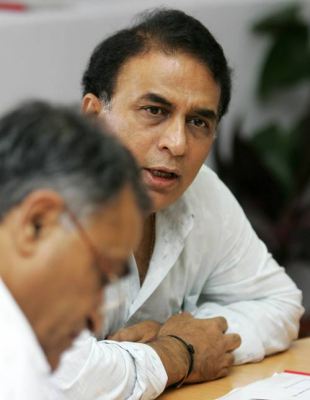
| ||
| | ||
I had, and consider it perhaps the most skilful and poignant knock in Indian cricket history. Only one batsman in three innings of that Test match had crossed the 50-run mark. The ball turned square from day one, and India were to bat fourth chasing a little over 200 for victory. This was like climbing Mount Everest in a snowstorm. But Gavaskar was not to be fazed. With sublime technique and dogged determination, he mastered the conditions to keep India in the hunt even as wickets fell around him like nine pins.
On the rest day of the Test I went to interview Tauseef Ahmed, the offspinner, and his room-mate Iqbal Qasim, the left-arm spinner. The spin twins had reduced the Indian innings to rubble. Now only one man stood between them and victory: Gavaskar, unbeaten on 50-something. Tauseef and Qasim were usually chirpy souls, but on this day appeared so high-strung that they wouldn't even talk to each other.
"Woh Baba Adam ab tak khel raha hai [that old man is still batting],'' said Qasim, breaking the silence. ''Bat hain ya deewar? (does he have a bat or a wall?)'' Tauseef chipped in. ''We've not been able to sleep because of the tension."
The next day, just when it appeared that Gavaskar would win the match single-handed, he fell for 96. Imran Khan called it the best innings he had seen. India eventually lost that Test match by a small margin of 16 runs, and Gavaskar bowed out of Test cricket a forlorn, but never to be forgotten, hero.
It's almost 22 years since he retired, but memories of his exploits are still fresh. He arrived with a bang in 1970-71, scoring 774 runs in his debut Test series (still a record), and finished with a flourish, scoring 96 in his last Test innings, a century in his last first-class match, and a maiden hundred in his penultimate one-day game - all in 1987, at age 38. He retired as he always wanted to: when people asked why, not why not.
Which, of course, brings me back to the original query of the twentysomething lad at the CCI about Gavaskar and Tendulkar. I still don't have an answer, but I have a counter-query: Would there have been a Tendulkar as we know him if there was no Gavaskar?
